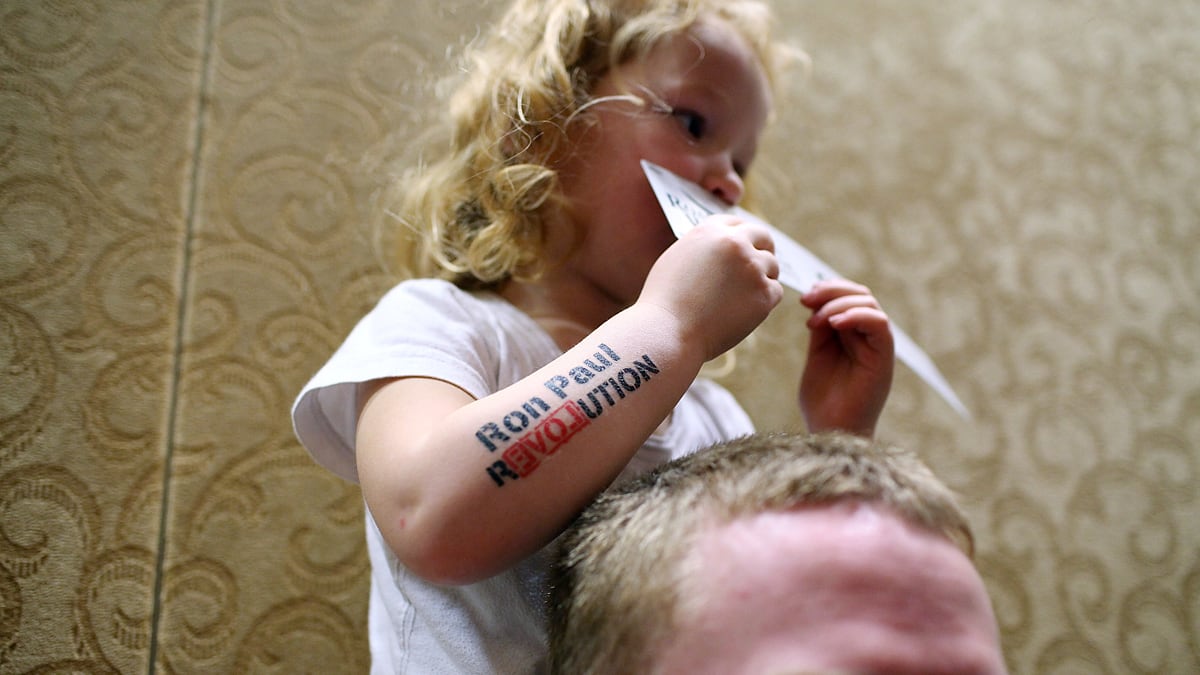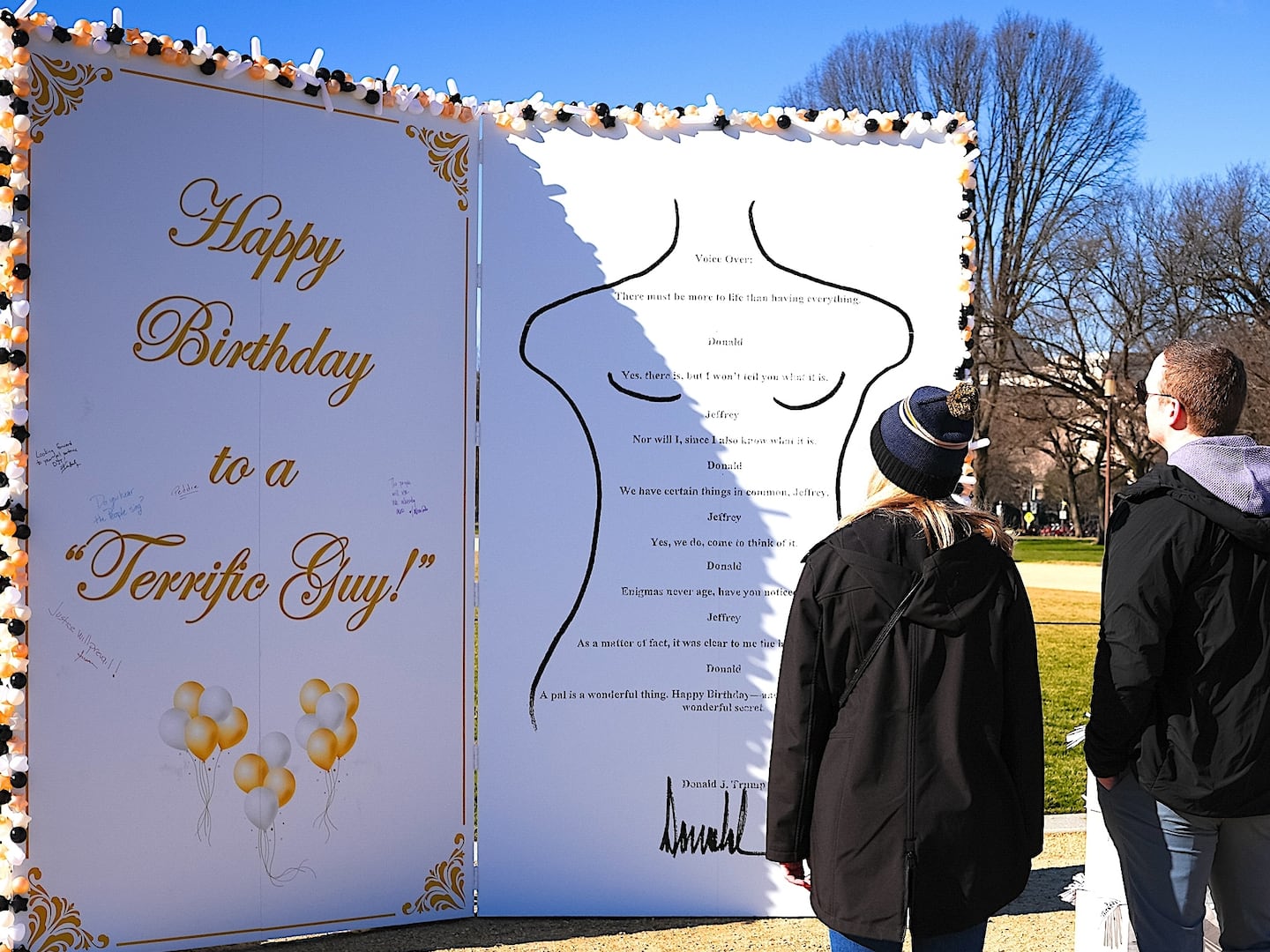To liberals, he’s a radical. To establishment Republicans, he’s a crank and a gadfly. And to his rabid libertarian base, he’s a courageous crusader uniquely capable of transforming a lost nation into a paradisiacal Galt’s Gulch.

But to about 4,000 people born in rural south Texas in the late ‘60s and ‘70s, Ron Paul is the doctor who delivered them from their mother’s womb.
With the retired ob/gyn now poised to do damage in the Iowa Republican caucuses, The Daily Beast set out to ask some of Ron Paul’s babies—and their mothers—about the curmudgeonly candidate’s bedside manner.
Tracking them down wasn’t easy. Even the most advanced Googling turned up nothing but empty “Ron Paul Delivered Me” Facebook groups, and fruitless blog posts calling for Paul baby meet-ups. We solicited help on Paul’s numerous fan forums, where rabid supporters posted comments like, “I’d like to think that we are ALL his kids,” and “THIS is how we win the low-IQ vote” (apparently some thought the image of their candidate in doctor’s scrubs would endear him to the mindless masses). We even found a gracious librarian in Paul’s hometown of Lake Jackson who agreed to display a flier asking: WERE YOU DELIVERED BY RON PAUL? and offering up our contact information.
Slowly but surely, the stories started trickling in. As the only obstetrician in Brazoria County, Texas, Paul delivered a baby a day in the early months of his practice, and remained one of the area’s only ob/gyns for his entire medical career. By locals’ recollection, this status afforded him some modest measure of wealth and prominence in the community—one of his patients remembers that he was the only resident in town with a swimming pool—and his profession set the stage for his congressional career.
But what was he like as a doctor?
Barbara Allen, 69, describes Paul’s bedside manner as “pretty much to the point”: assertive, professional, and reassuring in his competence, if not with flowery pep talks. She says Dr. Paul wasn’t the type for chitchat, but whenever conversation did stray from her pregnancy, it inevitably turned to libertarian issues.
“You went in and you got an education on the gold standard,” she says. “That’s what he talked about when you were on the table.”
And Paul put his overtaxed money where his Ayn Rand-quoting mouth was: he famously refused to accept Medicare and Medicaid payments from his patients, opting instead to provide free services to expectant mothers in need. These days, Allen, like many in the small town of Lake Jackson, counts herself among the hometown hero’s supporters, but she wishes he had grabbed the national spotlight earlier in the presidential cycle. “He’s not forceful enough,” she laments. “He lets them run all over him.”
Synthia Ritz, of Angleton, Texas, was only 22 when Paul delivered the first of her five children. After 12 exhausting hours of labor, the usually shy Ritz found herself repeating, “I love you, Dr. Paul!” before planting a kiss on his face. Today, her kids are “horrified” by the thought of their mom smooching the libertarian warrior, but she insists the platonic affection was deserved.
“It sounds kind of silly, but I really loved him,” says Ritz, 60. “He was such a good doctor.”
The theme of Paul’s medical competence ran through every conversation we had with his former patients, and professional skill appeared to trump memories of his personality and even political ideology as the doctor’s most defining attribute. Interestingly, while none of his patients describe Paul as warm and fuzzy, many of them demonstrate the same die-hard devotion to his candidacy that characterizes the rest of his fan base—a result, perhaps, of having placed their lives in the hands of the candidate and finding him trustworthy.
Take Shelly Moore, for example. After giving birth to her son David in 1977, she began hemorrhaging. While nurses put her on an IV, Moore’s overexcited husband pestered Paul about what “mistakes” had been made, and whether his newborn son and wife would be OK. Paul managed the chaos calmly and confidently, according to Moore, and when it came time to transport her from the gurney, the doctor lifted her up himself and placed her down on the bed.
“I thought that was very kind, I’ll never forget that,” Moore says. “He was very strong, and it showed the caring he had for his patients. You just felt comfortable with him.”
Moore says she “did her homework” before deciding to support her former doctor’s presidential campaign, but if she adds a little extra oomph when she pulls the lever for Paul, that personal experience will no doubt play a role.
While many of the women whose babies Paul delivered cite their interactions with him as a contributing factor to their political allegiance, the babies themselves are less committed to his candidacy. Now in their late 30s and 40s, the children Paul brought into the world tell The Daily Beast his political career is little more than a curiosity. Shelly Moore’s son David calls his personal connection to Paul “a side note,” and expresses little interest in the candidate. And Jay Gibson, whom Paul delivered in 1978, told us he was a Herman Cain fan before the pizza mogul dropped out of the race.
If there’s an exception to this rule, it’s Kirsten Ames-Kahn. We first came across her name in the Ron Paul chat forums, where she floated the idea of organizing a meet-up for people, like her, whom Paul had delivered. She’s living in Denver now, and describes herself as an Obama-supporting liberal with no plans to switch teams.
Still, she’s felt oddly drawn to Paul ever since she discovered over Thanksgiving dinner years ago that the political figure was once her mother’s ob/gyn. She remembers pressing her mom for details—her mother described him as “very handsome”—and she began closely following his political career.
“Anybody who has such an intimate connection to your life, you’re willing to keep an eye and ear out for,” Ames-Kahn says. “I haven’t gone as far as going to Ron Paul rallies or anything, but I’m definitely keeping a watchful eye on the news.”
After all, Ames-Kahn says, “I have a history with him.”







